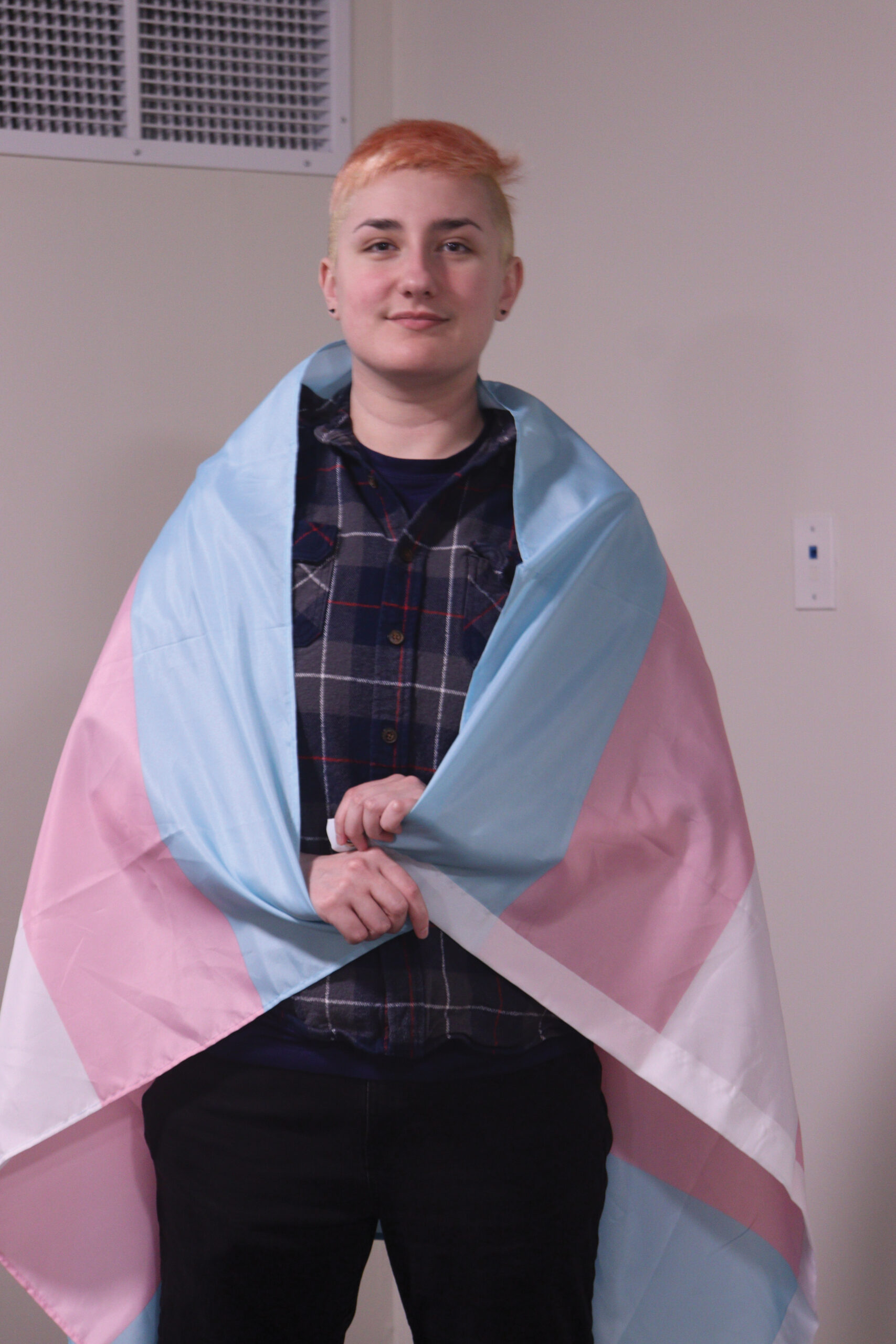Damien Friesen, a transgender man, believes being LGBTQ can be an isolating experience.
LGBTQ people are often at far higher risk of facing housing instability, eating disorders, bullying, and suicide.
Mental health is important, no matter your gender or sexuality. However, being LGBTQ often puts people at higher risk. Being LGBTQ brings a whole host of challenges, including coming out, lack of acceptance and a lack of support resources.
The Trevor Project is an American non-profit that provides support and resources to LGBTQ people with a toll-free hotline and website.
Numerous studies by The Trevor Project have noted suicidal thoughts and suicide attempts are higher with LGBTQ students than cisgender, heterosexual students. One published on Sept. 28, 2022 specifically notes 39 per cent of transgender and nonbinary American college students have considered suicide. In comparison, cisgender LGBQ students sat at 26 per cent. They had the lowest per cent, not including cisgender, heterosexual students.
“Its difficult to make friends and be open with people if you have mental health issues but it is tenfold if you’re gay or part of the LGBTQ community because there’s so much more that you have to worry about,” explained Damien Friesen, a transgender man from Lethbridge.
For transgender men, there is an extremely high chance of experiencing trauma because of their gender identity. According to a study done by The Trevor Project on July 28, 2022, 53 per cent of transgender men experience trauma symptoms.
LGBTQ people still face discrimination and even violence in their daily lives. Deadly shootings are not rare and continue to happen. Club Q, an LGBTQ club in Colorado Springs, was targeted by a shooter on Nov. 19. Five people were killed and 25 were injured. The attack came a day before Transgender Day of Remembrance, held on Nov. 20 in honour of transgender people who have been killed in acts of anti-trans violence. Attacks like this are not rare, especially on drag queens, nonbinary people and transgender people.
Unfortunately, 73 per cent of LGBTQ people say they’ve faced discrimination, according to The Trevor Project.
“I’m very privileged in that I pass well, so I don’t have any stresses on people perceiving me as anything other than male. I know that if I didn’t pass well enough that it would be something that would eat away at me constantly. I would have serious problems if I didn’t pass,” said Patroclus Gun, a transgender man living in Ireland.
Access to mental health services and LGBTQ support is critical for suicide prevention. Support from parents and friends is even more important.
For many LGBTQ people, their parents not accepting them is one of the scariest things about their identity. Many say they delay coming out, don’t update their parents on changes in their identity, or that they will never come out at all because of the fear.
“My parents are very traditional and overall conservative people and it’s made growing up with a queer identity extremely difficult. I was constantly scared of them suddenly wanting to go through notebooks that had a new boy name written in them over and over with my last name,” said Evan Goodspeed, a queer man from the United States.
Goodspeed says he has received uncomfortable questions from ignorant peers. He has noticed people looking at him weird and saying they “…don’t want to be around someone like [me].”
For LGBTQ people looking to support their mental health at Lethbridge College, there are some resources available. Wellness Services has registered psychiatrists and councillors available with appointments able to be booked by phone or email. The Pride Lounge in Andrews 1717 is a place to meet other LGBTQ students and form community in a safe space on campus. The Lethbridge College Code of Conduct includes LBGTQ anti-discrimination as well. If someone is experiencing harassment, discrimination, or violence, there will be support from Lethbridge College.
For LBGTQ people in crisis, you can call the Lesbian, Gay, Bi and Trans Youthline which offers free peer support for those 26 and under. You can call them at 1-800-268-9688. There is also the Trans Lifeline Hotline, available 24/7 with free peer support at 877-330-6366.



